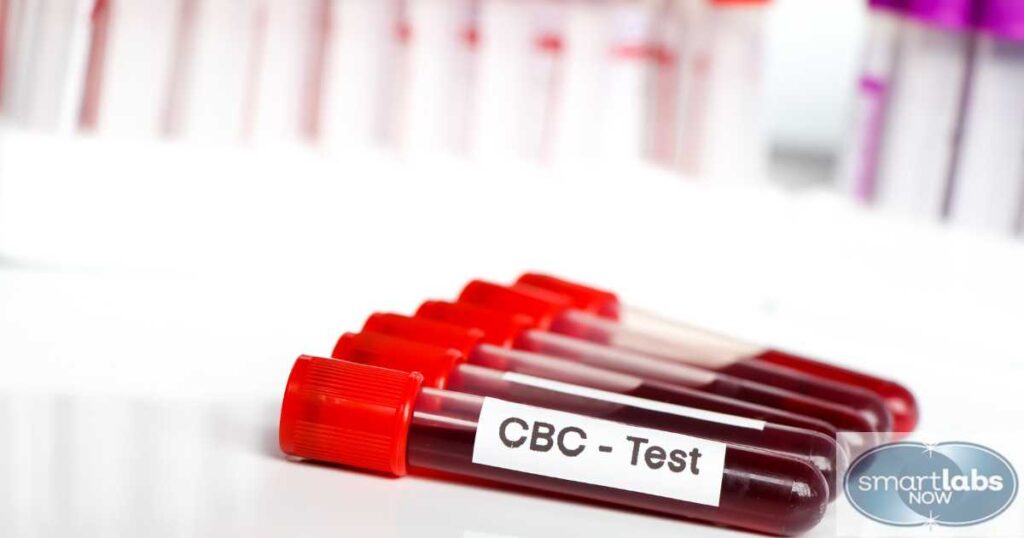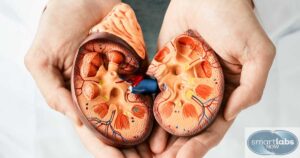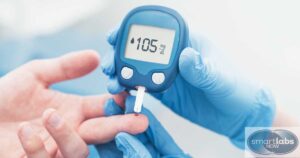
A CBC test is a simple but powerful tool for detecting common diseases before they become serious. It provides key insights into your overall health, helping identify issues like infections, anemia, kidney disorders, and more. Even if you feel fine, a CBC can catch hidden conditions early, allowing for timely treatment.
Healthcare professionals use the test as part of routine checkups. But it also helps diagnose a range of diseases and health conditions. For many, it serves as the first indicator of underlying health issues, providing a window into your body’s well-being.
The frequency of a CBC blood test varies from person to person, depending on factors like age, medical history, and risk for diseases. Generally, adults should get one as part of their annual physical check-up. However, people with specific conditions such as chronic kidney disease, autoimmune disorders, or those undergoing cancer chemotherapy may need more frequent testing. Pregnant women also undergo regular CBC tests to monitor their health and that of their baby.
A CBC offers numerous benefits. First, it provides critical insights into your overall health, even if you’re feeling well. Early detection of abnormalities like anemia, infections, or blood disorders (sometimes entailing cancers) allows for prompt treatment before conditions worsen. A CBC also tracks the progress of ongoing treatments or recovery from illness, helping doctors adjust care as necessary. Lastly, it’s a low-risk, simple, and relatively inexpensive test 🤓.

Kidneys filter waste from the blood. When they aren’t functioning well, waste accumulates, affecting the red blood cells and hemoglobin levels. A CBC can show if your red blood cell count is too low, indicating potential kidney issues.
Early symptoms include fatigue, trouble concentrating, swelling in your feet or ankles, and changes in urination patterns. Often, kidney disease goes unnoticed until the damage is severe.
The earlier kidney disease is detected, the better. It allows for interventions like dietary changes, medication, or dialysis to manage the condition before it progresses to more severe stages like kidney failure.
Additional diagnostic tests for kidney function provide comprehensive insights into renal health and efficiency through a variety of imaging, biochemical, and urine-based assessments.
These diagnostic tests collectively enhance the understanding of kidney function, enabling timely interventions for various renal conditions.

Preeclampsia is a pregnancy complication characterized by high blood pressure and damage to other organs, most often the liver and kidneys. It typically occurs after the 20th week of pregnancy.
A CBC test can help diagnose preeclampsia by showing abnormalities in platelet count, hemoglobin, and hematocrit levels, which can indicate organ stress or damage.
Preeclampsia can be dangerous for both the mother and baby, potentially leading to premature birth, growth restrictions, or even maternal seizures. If left untreated, it can lead to eclampsia, a severe condition that can be life-threatening.
Treatment often includes close monitoring of both mother and baby, medication to control blood pressure, and, in severe cases, early delivery to prevent complications.

A CBC won’t diagnose specific sexually transmitted diseases (STDs), but it can indicate underlying infections or inflammation by showing elevated white blood cell counts.
Common signs include unusual discharge, pain during urination, sores or bumps around the genitals, and fever. However, some STDs, like chlamydia and gonorrhea, can be asymptomatic.
Many STDs are treatable with antibiotics or antiviral medications, but early detection is key to preventing complications and transmission to others.

Lyme disease, caused by tick bites, can affect the body’s immune system. A CBC may reveal low white blood cell counts or anemia, which are signs your body is fighting off an infection like Lyme disease.
Symptoms can range from fever, headaches, and fatigue to more severe issues like joint pain, heart problems, or neurological disorders.
Early treatment with antibiotics is usually effective. Left untreated, Lyme disease can lead to chronic complications that are harder to manage.

A CBC can reveal dehydration through elevated red blood cell counts and hemoglobin levels. When you’re dehydrated, the liquid part of your blood, plasma, decreases, causing a higher concentration of red blood cells.
Mild dehydration causes dry mouth, thirst, and dark urine. Severe dehydration can lead to dizziness, confusion, and even fainting.
Mild dehydration can be treated by drinking water or electrolyte-rich fluids. Severe cases may require intravenous fluids.

Anemia occurs when your blood lacks enough healthy red blood cells or hemoglobin. A CBC helps diagnose anemia by measuring hemoglobin and hematocrit levels.
Common symptoms include fatigue, pale skin, shortness of breath, and dizziness.
Treatment depends on the cause. It may include iron supplements, a diet rich in iron and vitamins, or, in severe cases, blood transfusions.

While a CBC doesn’t directly diagnose diabetes, it can provide clues. For example, high white blood cell counts might indicate the presence of an infection, which people with diabetes are more prone to.
Frequent urination, increased thirst, unexplained weight loss, and blurred vision are common symptoms of diabetes.
Diabetes is managed through lifestyle changes, blood sugar monitoring, and medication such as insulin or oral drugs.

Chronic fatigue could be a sign of underlying conditions like anemia, infections, or thyroid issues. A CBC can help determine if your red blood cell count is low or if you have an ongoing infection.
Excessive tiredness, difficulty concentrating, and low energy are hallmark symptoms of fatigue.
Treatment involves addressing the root cause, whether that’s correcting anemia, improving sleep, or managing stress.

High levels of red blood cells, hemoglobin, or platelets may increase the risk of blood clot formation, a significant cause of stroke.
Sudden numbness, confusion, trouble speaking, or severe headache are warning signs of stroke.
Treatment may include clot-busting drugs, surgery, and rehabilitation to regain lost function.

Liver dysfunction can affect blood cell production and lead to abnormalities in red blood cell, white blood cell, and platelet counts, all measurable by a CBC.
Jaundice (yellowing of the skin), fatigue, abdominal pain, and swelling are common symptoms of liver disease.
Treatment depends on the cause but can include medication, lifestyle changes, or, in severe cases, a liver transplant.

During pregnancy, a CBC is used to monitor for anemia, infections, or clotting issues. It can also track platelet levels to ensure the mother’s blood can clot properly, reducing the risk of excessive bleeding during childbirth.
Signs of complications include severe headaches, swelling, high blood pressure, or abnormal bleeding.
Depending on the condition, treatments range from medications and bed rest to early delivery in severe cases.
A CBC blood test is a powerful tool in detecting various health conditions and diseases, from kidney disease to anemia, preeclampsia, and stroke. It can even play a role in unearthing markers of alcohol and other substance abuse.
Regular testing ensures early detection, which is critical for effective treatment. Whether you’re managing a chronic condition or simply staying on top of your health, it can provide essential insights into your body’s condition.
Take control of your health by scheduling one today. Early detection can lead to early intervention, helping you live a healthier life.
Before engaging with any pharmaceutical, natural substances, or activity regimens mentioned or prescribed in this post, please consult your primary care physician. Smart Labs Now is not responsible for any health or life outcomes resulting from the use of the information or recommendations provided. This account does not serve as a substitute for professional medical advice.